I recently read two books by Jonathan Safran Foer - Eating animals (EA) and We are the weather (WATW). I heard him being interviewed a few months ago and thought he sounded interesting so I started with the earlier book EA. I read the quotes on the back cover from prominent public figures like Joanna Lumley about how powerful the book is and how it will change your life but I didn’t have such expectations when I started reading it. The author has such a way with words - he is so eloquent, so moving, so profound that I’d already started to think about how it would change my life after the first few chapters. EA focuses on the animal cruelty aspects of eating meat, while WATW focuses on the environmental impact of eating meat.
This is the third of my brain dump posts following my recent Tesla and Axie Infinity efforts. Since reading EA I’ve been down a few rabbit-holes which have led me to the plant-based food movement and now I can’t stop thinking about it! Warning - this post is very long. I could have broken it into several smaller posts but I wanted to just get it all out there in one go!
Step 1 - Eating Animals - factory farming is bad
That’s stating the obvious. But it’s so bad that I had to start thinking about where the meat I ate came from and decide whether the animals had been treated humanely. I needed to start researching farming practices in Australia (rightly or not - in my mind I had decided that farming practises in Australia were less brutal than in America - EA is written by an American author).
Here is my curated list of quotes from the book -
What the meat industry figured out is that you don't need healthy animals to make a profit. Sick animals are more profitable... Factory farms calculate how close to death they can keep animals without killing them. That's the business model.
Suffering is more profitable than the humane treatment of animals.
If we are at all serious about ending factory farming, then the absolute least we can do is stop sending checks to the absolute worst abusers. For some, the decision to eschew factory-farmed products will be easy.
Reject factory farming.
Imagine being served a plate of sushi. But this plate also holds all of the animals that were killed for your serving of sushi. The plate might have to be five feet across.
Farming oceans is extremely wasteful. Commercial fishers usually target just one species of marine life to kill for food and end up killing many others in the process that go to waste.
Whether we change our lives or do nothing, we have responded. To do nothing is to do something.
One of the greatest opportunities to live our values - or betray them - lies in the food we put on our plates.
Three key takeaways: food, values, choice
Do you eat chicken because you are familiar with the scientific literature on them and have decided that their suffering doesn't matter, or do you do it because it tastes good?
Which do you value more: suffering or how your food tastes?
Step 2 - Reevaluating my vision for the future
Being an amateur cheese maker, I had this romantic vision of my future: live on a few acres of arable land, raise a few milking goats, make some cheese and other dairy products, and slowly scale it up into a business. By this stage I was still OK with eating meat, with the caveat that I knew exactly where it had come from and the animals had been raised humanely.
mrshill asked the hard question over breakfast one Sunday morning - Is this still what our vision for the future looks like? Here’s what we discussed -
- I would do everything I can so that my goats are happy.
- The goats would just be for milking.
More hard questions followed - Female goats need to be pregnant and have babies to be milked, so what would we do with the male goats?
Hmmm. Keep them for grazing? Sell them?
If we keep them, we will end up with too many goats. If we sell them, how they are treated by someone else will be out of our control. Are you will to accept that?
I don’t know.
EA talks about humane animal slaughtering practices but they are few and far between nowadays and they cost and arm and a leg apparently.
Without properly answering all these questions, we were left pondering whether we should look into nut cheeses and if I wanted to make nut cheeses, would we have a farm with a nut tree orchard? And wouldn’t we need a lot of fancy equipment to process the nuts into milk at scale?
Lots of questions, but still pondering the answers at this stage.
Step 3 - We are the weather - contemplating veganism
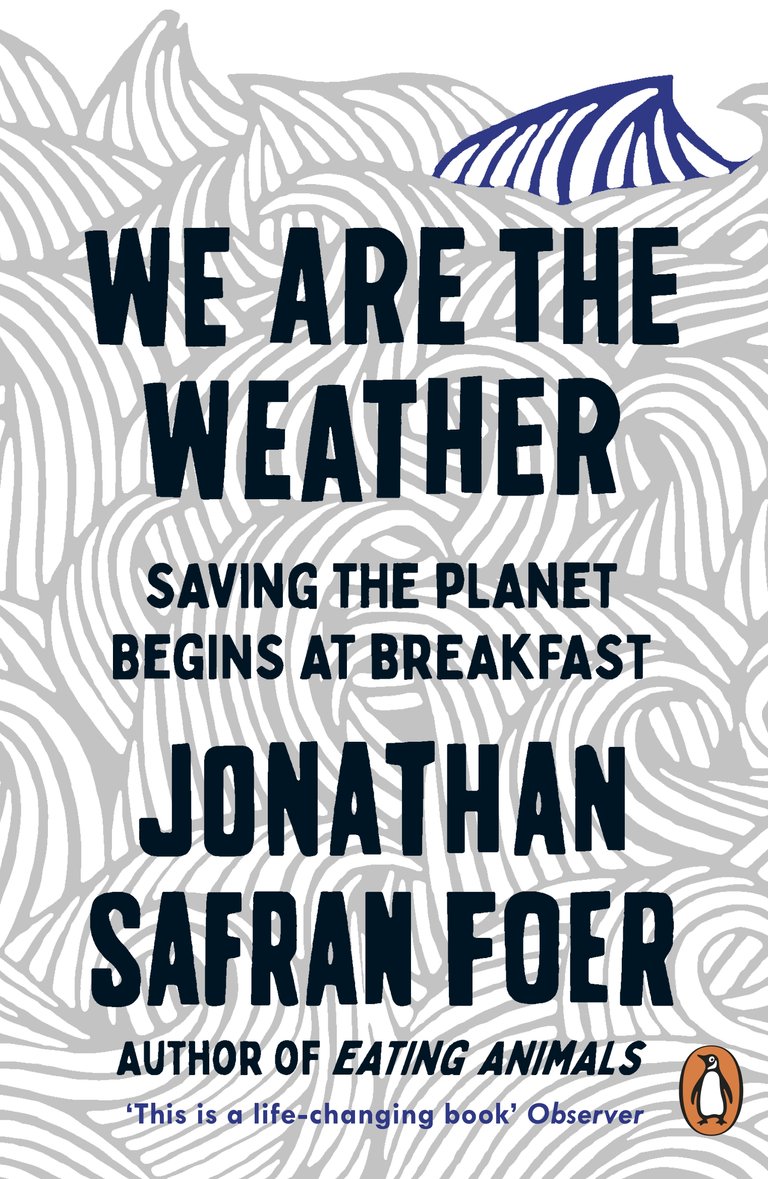
After reading EA I’d barely eaten meat. The only exception was some meat that we’d had in the freezer for some months. Of course it registered pretty quickly that if I still consumed animal dairy products, then land needed to be cleared to raise the animals on, feed and water were needed to sustain them, they would still emit carbon. Animal dairy cheese is the third-worst food in terms of environmental impact after lamb and beef - worse than pork and chicken!
The author talks about Al Gore and An Inconvenient Truth a bit. At the conclusion of Gore’s documentary, he leaves us with this statement -
Each one of us is a cause of global warming, but each one of us can make choices to change that with the things we buy, the electricity we use, the cars we drive; we can make choices to bring our individual carbon emissions to zero.
Anything missing here? Oh yes, that’s right. The environmental impact of animal agriculture. Its impact exceeds all transport combined. It pollutes and consumes more water than any other industry. Surely this is the inconvenient truth. It’s a bit convenient that he forgot to mention it. I didn’t know too much about it either - because not enough people are talking about it. I believe it’s not being talked about because of systemic support for the animal agriculture industry. Plant-based alternatives are in for a hard time moving the needle on this, much in the same way that renewables have struggled with systemic support for the coal industry. It’s also said to be hard for the average person to make the connection between the food that’s on their plate and, say, deforestation in the Amazon.
A central theme of the book is sacrifice. If you want to make a difference, then you need to sacrifice things (also - you need to do it now). The subtitle of the book is ‘Saving the planet begins at breakfast’. The author has not given up consumption of all animal products (he is still struggling to give up dairy - he’s not alone!) but argues that if we sacrifice enough then (along with everything else we need to be doing) we can meet our targets to save our planet. His recommendation for sacrifice is to cut animal products out of our breakfast and lunch while still consuming them at dinner time.
Powerful words from WATW -
Changing how we eat will not be enough, on its own, to save the planet, but we cannot save the planet without changing how we eat.
It’s not the only thing we need to do, but it’s the most important.
Choosing to eat fewer animal products is probably the most important action an individual can take to reverse global warming - it has a known and significant effect on the environment, and, done collectively, would push the culture and the marketplace with more force than any march.
Choice - big environmental impact, individual action, collective force
Series of quotes on individual action vs powers outside our control -
We believe that the environmental crisis is caused by large outside forces and therefore can be solved only by large outside forces. But recognizing that we are responsible for the problem is the beginning of taking responsibility for the solution.
It doesn't require breaking the laws of physics – or even electing a green president – to select something plant-based from a menu or at the grocery store. And although it may be a neoliberal myth that individual decisions have ultimate power, it is a defeatist myth that individual decisions have no power at all. Both macro and micro actions have power, and when it comes to mitigating our planetary destruction, it is unethical to dismiss either, or to proclaim that because the large cannot be achieved, the small should not be attempted.
The average U.S. and U.K. citizen must consume 90 percent less beef and 60 percent less dairy. How would anyone keep track of that? No animal products for breakfast or lunch. It might not amount to precisely the reductions that are asked for, but it’s just about right, and easy to remember.
A call to action - cut animal products out until dinner time.
Beyond Impossible? (and others)
Down the rabbit-hole I inevitably did some research on the two best-known plant-based meat producers - Beyond Meat and Impossible Foods. Let’s have a look at their mission statements (like Tesla, they seem very mission-driven).
Beyond
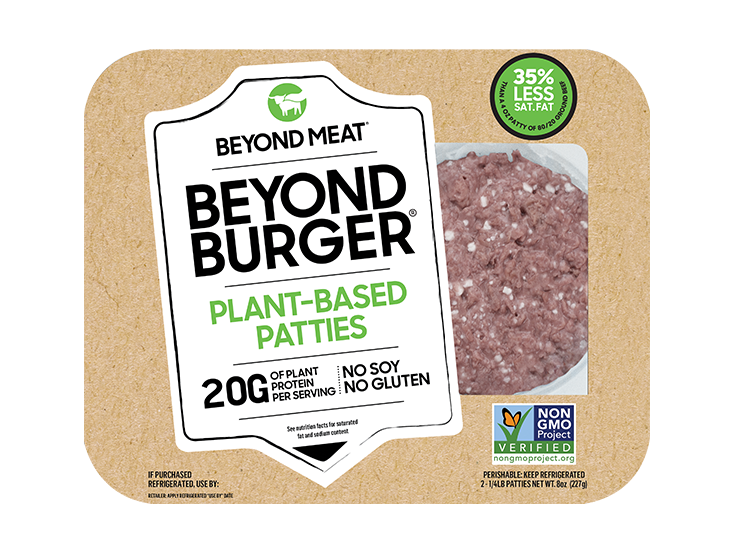
Our mission is to create The Future of Protein® – delicious plant-based burgers, beef, sausage, crumbles, and more. By shifting from animal to plant-based meat, we can address four growing global issues: human health, climate change, constraints on natural resources, and animal welfare. source
Beyond gets a lot of coverage from Wall Street analysts - why not, it’s a listed company (I bought a small amount of shares with play money after reading EA). When I first heard about Beyond Meat years ago I was a flexatarian, so had no qualms about eating beef burgers. I thought, why would a vegetarian want to eat a plant-based burger that’s trying to be meat? But the answer is of course that they are not trying to appeal to vegetarians. Folks know that animals had to die for their beef burger but they ate it anyway. But what if a plant-based burger tasted just like a beef burger? Would that change their mind? I tried a Beyond burger for the first time last week. I absolutely loved it! It tasted pretty close to beef to me.
Impossible
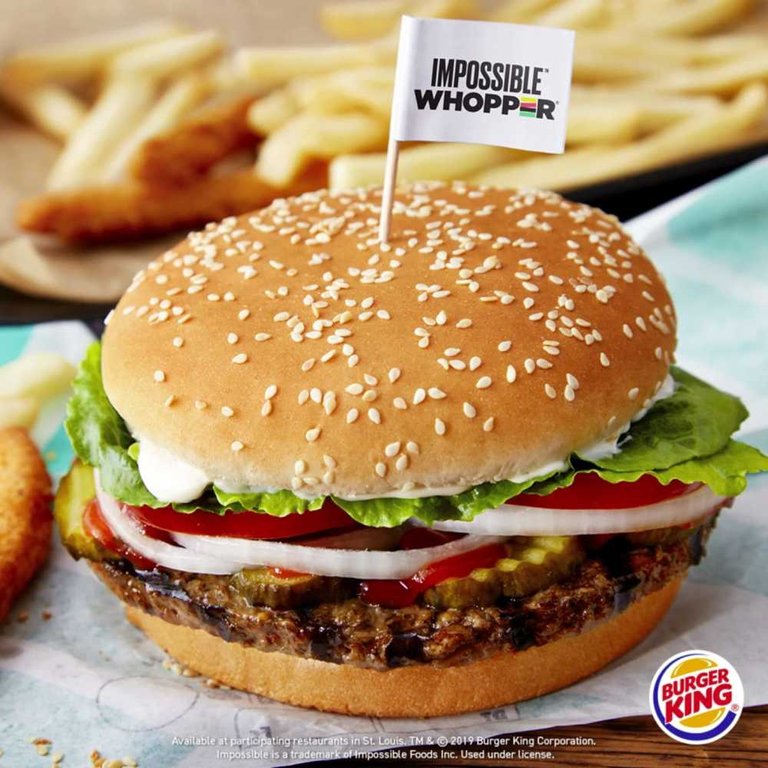
Impossible Foods’ mission is to make our global food system truly sustainable. More here
Impossible seems to be more proactive in its marketing and research and listening to or reading anything from their CEO Pat Brown (shares the same surname with Beyond’s Ethan) is mind-blowing! P Brown, an award-winning scientist, took an 18-month sabbatical from his professor role at Stanford to think about how he could tackle climate change. He decided that the biggest environmental problem was the use of animals to produce food and that he was going to take responsibility for solving it. And so began the Impossible story!
Impossible claims to have the ability to scale production 2x each year to meet demand. The main piece of the puzzle that they (and Beyond) need to solve is cost. If it tastes like meat from an animal and it costs less, Pat Brown says that they will have won. He gives it three years -
we had to have a trajectory to be able to produce meat as uncompromisingly delicious as anything out there at a substantially lower cost than the animal-based technology can do it. And the economics are very tilted in our favor because the way we produce it is so much more resource efficient. We use a quarter of the water, 1/20th the land, 1/8th the greenhouse gas emissions, way less fertilizer and pesticides and stuff like that. That translates into cheaper production cost. When we look at the technology we have today and project it at scale, there’s a clear trajectory to being able to produce this product and basically all the meats that are in our pipeline at prices that are at or below the cost of the cheapest meats on the market. source
That was from an interview three years ago. I wonder how they are tracking with this?
Eat Just

Eat Just has been in the news recently for their lab-grown chicken meat. This is cultured meat, as opposed to plant-based. My understanding is that they take an amount of muscle tissue from a healthy-looking animal, take it to their lab, do some special fermenting stuff and ‘grow’ some meat with it in a few weeks. Animals don’t die during this process and land does not need to be cleared for it, but it is neither vegan nor vegetarian because the end product is animal-based meat! Although not the only ones working on this, theirs is the first to have been approved for sale (in Singapore). Cultured meat looks like it will almost certainly disrupt the likes of Beyond and Impossible but there needs to be widespread regulatory approval of lab-grown meats and costs need to come down. Also people would need to be comfortable with the idea of lab-grown meat. Who knows how long that will take!
Eat Just have also produce a pretty cool plant-based egg product (see What are ‘eggs?’).
Akua
Akua are a newish company that I heard about recently on Republic. Their soon-to-be-launched product is ... the Kelp burger. I also put some play money into this one. Their pitch is great, and kelp seems super-sustainable. I hope this company succeeds because I really want to try one of their burgers!
What is ‘meat’? What is ‘dairy’? What are ‘eggs’?
What is meat? The traditional definition of meat is the flesh of an animal eaten as food but hearing Pat Brown speak about Impossible burgers and meat challenged my idea of what meat is. Brown refers to cows as ‘technology’. They have inputs (plants) and outputs (meat) -
Meat today basically is made using pre-historic technology, using animals to turn plants into this very special category of food that is defined by a particular kind of delicious flavor, sensory experience and nutritional profile with general affordability and accessibility. source
So Brown believes his technology is better than the cow at producing meat. Fair enough. As long as it tastes as good then surely he’s right. If it looks like, taste like and smells like the thing that came from an animal, is it meat?
What is dairy? I believe the traditional definition for dairy is - food made from the milk products of mammals. So by definition there is no plant-based dairy. I think there’s still a way to go until a single plant-based milk can serve as the base ingredient to make all of the popular dairy products - cream, yogurt, ice cream, butter.
What are eggs? Watch. C-R-A-Z-Y! This is made by JUST. Mung beans ... MUNG BEANS! Wen JUST IPO?
On the environmental impact of backyard chickens and quails for eggs
The factory farming of chickens chapter in EA was the most horrifying for me. JUST egg is cool and all but at the moment it’s just scrambled eggs in a tube. What about backyard chickens? From an environmental perspective, one of main the arguments to go vegan is that excess land needs to be cleared to raise the animals. Well if you’re keeping them in your backyard, the land hasn’t been cleared. You’re giving them a good life. You’re harvesting their manure to fertilise your garden organically. They’re consuming most of your organic food waste. They’re grazing around your yard pecking away at pests and weeds. Is this a problem? Can we justify them from an environmental perspective?
Offsets
Lastly I wanted to touch on the idea of ‘carbon’ offsets. So in principle (in practice is a whole other kettle of fish I don’t want to get into) carbon offsets are a great idea for flying. It’s obviously a big polluter. But I’ve been thinking about the idea of offsets for meat, dairy or eggs consumption. I could not find anyone offering this as a service.
The common narrative around the environmental impact of animal agriculture is that cows fart and that makes them really bad polluters. In this blog post, the author has calculated the amount of carbon offsets his family would need to purchase based on their meat and dairy consumption and the methane output of cows.
However, there is obviously the opportunity cost of land that comes with it too and the difference in water consumption between plant- and animal-based meats. Take this infographic from Impossible as an example, which compares the difference their burgers make versus a standard beef burger:
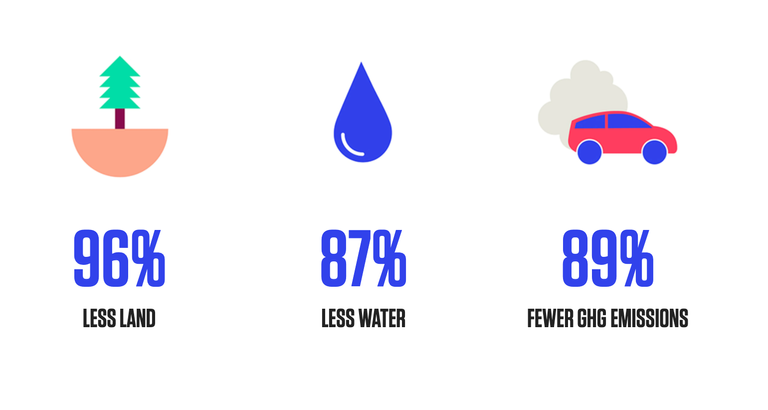
There is a company called jora that’s doing interesting work around calculating carbon offsets based on consumer spending. However, as more people learn about the environmental impacts of animal agriculture, there will be demand for a service that offsets carbon, water and opportunity cost of land for folks that do not want to change their eating habits and offset the extra ‘expense’ that it causes.
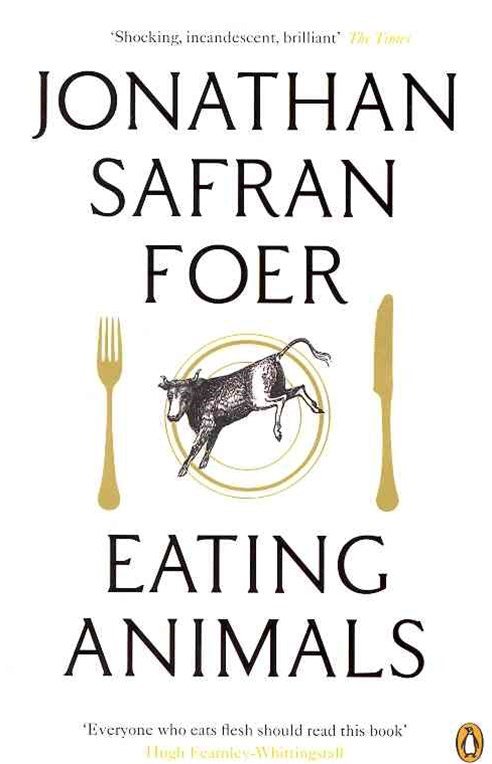
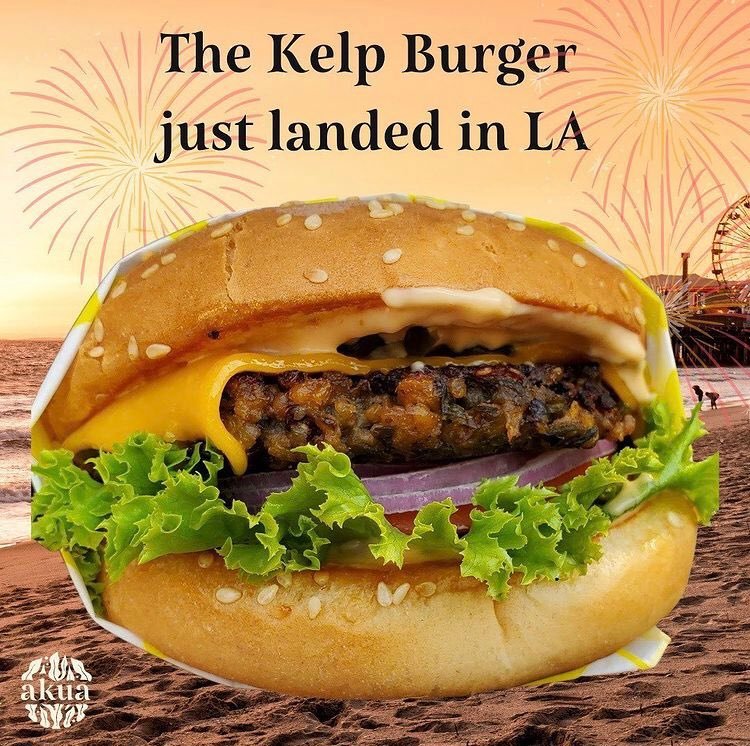
Okay you really need to submit this to @naturalmedicine challenge.. you'll find it outlined as a pinned post in that community and under the @lotusshares account.
This is excellent and EXACTLY the kind of post we love at Natural Medicine!
I fell in love with JSF for two of his fiction books, but I've always wanted to read these and I will try to get them from library.
Tagging @plantstoplanks in case she misses it.
Thanks for the tip and the kind words. I've been a follower of yours for a while now and enjoy reading your content.
Oh thanks so much, it's nice to know people read my stuff! sometimes I don't WANT them to read it, haha!
Oh I also see you are Australian. I'm down in Vic.
How in the heck have I not read either of these books yet? I've heard of EA, but haven't read it. Putting both of these on my 2021 reading list. Even if I already know a lot of what is in there, I still always appreciate the renewed motivation to keep going and continue to do better myself.
This really is so awesome to read your thoughts and how it is perhaps changing your own views and life path. Yes, in some ways it takes sacrifice (especially if totally shifting your possible source of income), but I think often people don't realize how much they end up gaining once they make the shift. One of my clients really likes the VB6 approach which is a Mark Bittman book touting the same idea of eating vegan before 6 (basically until dinner time). I think that is much more approachable for many to realize that it doesn't always have to be all or nothing.
Some of the latest plant based foods do baffle me a bit, but then I have to remember it's been 8 years now since I ate meat! I finally tried the Beyond and Impossible burgers this year, and they were almost too close to the real thing. Which is why they really are excellent transition foods for people who do enjoy the taste of meat but want a plant-based alternative. I think I'll pass personally on the lab-grown meat, but it absolutely has big potential to impact the environment and possibly eliminate factory farming. Lots of great things going on now that there is so much demand for cruelty-free alternatives, so companies are taking notice and creating new products to meet the demand.
Oh boy, didn't mean to write an article back to your post @mrhill! This was a great article, though, so thanks to @riverflows for calling me over so I didn't miss it.
I wonder - it was 8 years since eating meat when you tried the Impossible and Beyond burgers ... did you enjoy the taste of meat when you stopped eating it? And did you enjoy the taste of the plant-based ones?
I used to love bacon cheeseburgers as a kid and grew up eating meals centered around the "protein", so I can say I enjoyed meat I suppose. I never had any thoughts of becoming vegan/vegetarian until later on. Though I was really surprised when I made the switch that I didn't miss meat one bit. I thought I would, and had people ask all the time if I did. The plant-based ones that mimic real burgers taste good I guess, but I think after so long my tastes and preferences have changed. I enjoy a good black bean or lentil burger so much more personally. But as you pointed out those beefy veggie burgers really aren't marketed towards me.
Posted using Dapplr
Got it. So it seems you acquire a taste for meat and after a while it goes away - at least for you anyway. Everyone is different.
Yes, we all have different personal and cultural connections to certain foods, as well. So I think it's not always just what we like, but then also what strikes a chord with us on an emotional level, too. It is interesting to see people's individual journeys and what works/doesn't work for them!
Congratulations @mrhill! You have completed the following achievement on the Hive blockchain and have been rewarded with new badge(s) :
You can view your badges on your board and compare yourself to others in the Ranking
If you no longer want to receive notifications, reply to this comment with the word
STOP